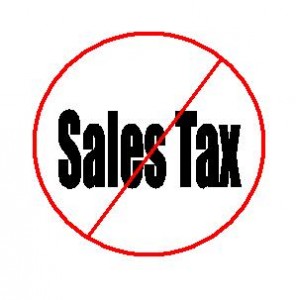Sales Tax
What is Sales Tax?
Sales tax rates
Taxes are a financial burden placed on the tax payers who are individual citizens of a state. Taxes are mandatory to be paid by all individuals that are earning a specific amount of income. Those who do not pay taxes or escape from paying taxes are said exhibit tax fraud or tax evasion. In this particular article the main types of federal tax will be discussed first and out of that sales tax will be covered in detail. So first classifying taxes into main categories, taxes can be categorized into:
- Direct taxes such as federal income tax
- Indirect tax such as sales tax
By definition direct taxes are those taxes or charges that have to be paid directly by the individuals for an expense or good and commodity that the individual utilizes for their own personal use, such as buying property, buying a car or any other good. On the other hand, an indirect tax is that tax that is passed on by another organization or corporation on the individual. This is an expense that is passed on by a third party on the tax payer.
Another classification that can be done according a percentage of the tax that has to be charged, which include the following categories:
- Regressive tax system
- Progressive tax system
- Proportional tax system
The first type of system, involves decreasing the amount of tax charged with increased income. This kind of system is usually imposed to withdraw tax benefits and allowances. The second type of tax system which is the progressive tax system involves increasing the amount of tax charged as the income of an individual increases. Such type of tax is charged to keep a fair point of view when taxing the people, since those whose income is higher should pay more federal tax returns than those whose income is less. Such a system is incorporated to keep the monetary flow regulated. By this means, the rich have to pay more to the government so the government can provide its poorer people with more facilities. The third type of category is the proportional tax system, in which there is a fixed amount of tax charged to everyone. In such a system, the initial amount can be fixed while another percentage can be set to be charged if the income level keeps on rising.
According to the first classification made i.e. direct and indirect taxes, taxes can be divided by:
- Taxes on income
- Federal Income tax
- Corporate tax
- Capital gains tax
- Taxes on payroll
- Unemployment taxes
- Social security contributions which may include compensations paid to certain individuals
- Taxes on property
- Property tax
- Expatriation tax
- Inheritance tax
- Death tax
- Transfer tax
- Wealth tax
- Taxes on sale of goods
- Value added tax
- Sales tax
- Excises
- Custom duties
- Tariff
- Other taxes
- Poll tax
- Bank tax
- License fees
- Financial transaction tax
- Sales Tax
Out of all of the above mentioned sales tax will be discussed. So what is sales tax? It is basically the additional amount that the customer has to pay upon the purchase of any good or service and is usually paid by the consumer at the time of the purchase. The amount that is charged is fixed as a percentage by the government of the state and it is multiplied by the base price of the good and that amount is added to the base price. Hence, the total price of any good or commodity is the base price plus the amount of sales tax that is charged. There are certain items that are excluded from this tax and will be discussed later on.
So the main types of sales tax include the following and what they cover will be discussed.
- Fair Tax – this is a federal tax that can also be used to replace the federal income tax which involves a certain percent of tax that has to be paid by an individual for earning a specified amount.
- Gross receipts tax – this tax has to be paid by all businesses; small or large that makes sales. This tax carries from the production stage to the retail outlet where the product is sold.
- Use tax – this tax is imposed on those goods and services that are bought and consumed from another state, such as goods being shipped from another country or commodities bought over the internet that come via mail. These taxes are usually enforced on the purchase of large goods such as ships or cars.
- Excise tax – such a tax is applied to products that are bought and sold by whole sellers instead of retailers and are enforced on certain products such as gasoline or alcohol.
- Value added tax – this tax is added to a particular product or a service in which the staff provides its services or any additional service has to be offered with the product. This tax is separate from the sales tax and is usually added to the total price at the point when the good is consumed.
- Securities excise tax – this is a tax that is enforced on the trade and selling of securities.
- Turnover tax – this tax is similar to sales tax, however, it is applied to specified goods such as capital goods, and hence this tax is a type of an indirect tax.
Criticism
Law enforces say that sales tax provides great regulation of money as it leads to economic growth as the state can provide more welfare facilities and services to its people. Sales tax also brings in money and capital for the government for investment and the government can also save this money for future improvement projects. Many studies have proven that this type of tax is perhaps the least harmful tax that leads to growth of the entire nation.
However, as there are two sides to every story, others say that tax is extremely harmful since it puts burden on the poor families. It is true, that through a progressive tax system the rich are taxed more than the poor, however, the amount that is still taxed from the poor who are already financially unstable, is a blow to their growth in regard to their earnings. Taxed rid them of the capability to save any money in order to improve their standards of living or to invest this money somewhere. Hence such taxes are most harmful to the poor and do no damage to the rich. Even with a progressive tax system, the effect is still regressive.




